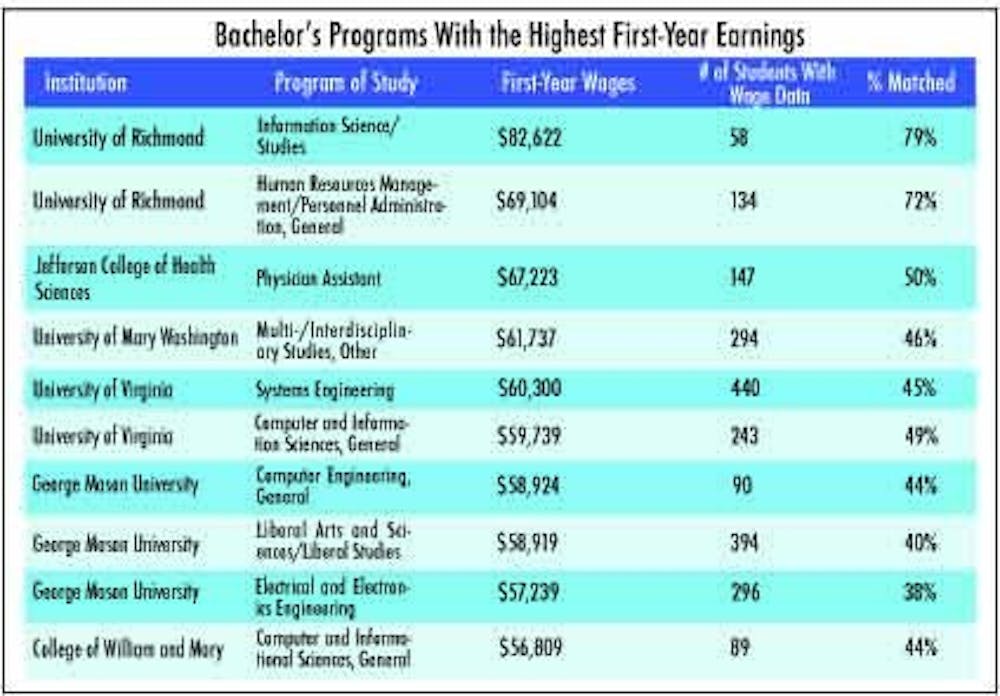A recent study by College Measures, a division of the American Institutes for Research, showed students who graduate from Virginia’s public universities with career-oriented bachelor’s degrees earn more than those with liberal arts degrees.
The study compiled salary data from recent graduates of two- and four-year Virginia institutions. Results showed career-oriented degrees, such as information sciences and human resources, earn nearly three times the amount of fine arts and anthropology degrees in one year’s salary.
“From a financial perspective, many [students] made bad decisions about which college to attend, and many more will choose the wrong degrees and majors over the next few years,” the report said. “By the time this year’s entering class graduates, many will have borrowed tens of thousands of dollars pursuing degrees that may not give them immediate access to high-paying jobs, and they may struggle for years or even decades to retire those loans.”
It does, however, vary by institution, according to the report. Mark Schneider, the president of College Measures, said three factors account for the differences between schools: the university’s selectivity, the economy and the value added by different programs. For instance, psychology graduates from the University or George Mason averaged about $10,000 more in earnings than those who held similar degrees from Emory and Henry College.
The University of Richmond’s Information Science program had the highest reported salary in the state for new graduates, with average earnings for graduates in their first year after graduation of about $83,000.
“The highest paying tend to be in health professions, business or engineering [and] the lowest tend to be in fine arts and social sciences,” Schneider said. “There is variation across programs at different campuses. Graduates from different degrees across states could earn much more.”
Nursing school graduates receive nearly $12,000 more per year than the average graduate with a bachelor’s degree, earning an average of nearly $50,000 within their first year out of school. Nursing graduates can earn even more out of state, but this takes into account wage increases to cover costs of living, Nursing School Asst. Dean Theresa Carroll said. Biology graduates earn the least of the 17 most popular majors studied, with an average of $27,893 in their first year.
Although graduates in science, technology, engineering or mathematical fields tend to earn more in the first year after graduation, there is evidence to suggest this trend does not remain constant. A 2011 report by researchers at Georgetown University found that workers typically rise to management positions after about 10 years in a field and see their pay increase by a large margin, one which those who continue in non-managerial positions typically do not similarly experience.
Graduates with business-related degrees also earned more than other graduates, though in widely varying amounts influenced by the school from which they graduated.
The study also considered community college graduates and found that those with technical and career-oriented associate’s degrees earn $2,000 more within their first year than the average bachelor’s degree graduate. Like their four-year University counterparts, those who pursue registered nursing are among the top earners.
Despite the wage gap between average four-year degree graduates and two-year degree technical graduates, Schneider emphasized the value of bachelor’s degrees. “A four-year degree in the long run is a great investment,” he said.







